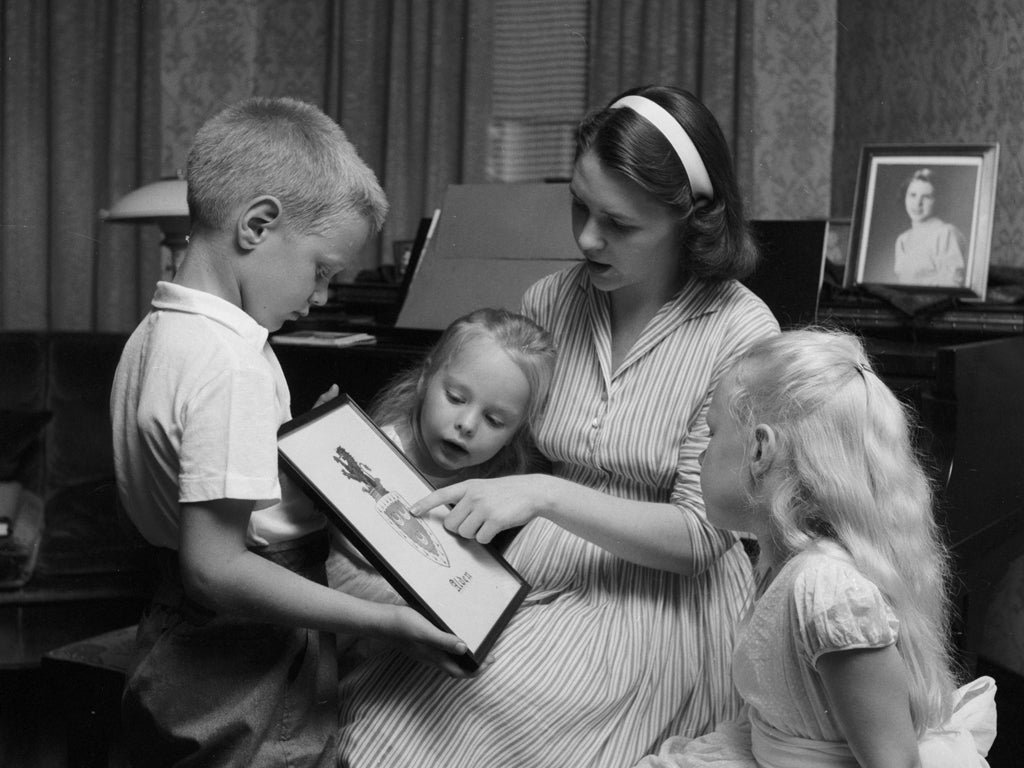Putin's right this time: If you’re going to have children, then three is the magic number
The Russian President has urged his countrymen to aim for three kids

Your support helps us to tell the story
From reproductive rights to climate change to Big Tech, The Independent is on the ground when the story is developing. Whether it's investigating the financials of Elon Musk's pro-Trump PAC or producing our latest documentary, 'The A Word', which shines a light on the American women fighting for reproductive rights, we know how important it is to parse out the facts from the messaging.
At such a critical moment in US history, we need reporters on the ground. Your donation allows us to keep sending journalists to speak to both sides of the story.
The Independent is trusted by Americans across the entire political spectrum. And unlike many other quality news outlets, we choose not to lock Americans out of our reporting and analysis with paywalls. We believe quality journalism should be available to everyone, paid for by those who can afford it.
Your support makes all the difference.It’s always a brave move to suggest there’s an ideal number of children. It’s also rather foolish. If there’s one area of life where there is no such thing as one-size-fits-all, then family size is definitely it. But Vladimir Putin has never been one to shy away from bold, outlandish statements. And, this week, he used his state-of-the-nation address in Moscow to suggest that a family with three children should become his country’s norm.
The Russian birth rate is 1.6 children per woman. It would need to rise to 2.1 in order to sustain the population, say experts. So Putin’s message is not casual avuncular dinner party talk. The Russian population is set to fall by a third by 2050 if existing trends continue.
This is, as Putin has written in the past, “a disaster for a country that occupies such a vast territory and contains around 40 per cent of the world’s natural resources.” (Subtext: you can’t really call yourself a Scary World Power if most of your people are dying out.)
The difficulty is, since the invention of the Pill and the advent of consumerism, in Russia – and pretty much everywhere in the First World – three now seems, well, a crowd. I know because I have given birth to this multitude (aged two, six and nine).
Three is a magic number when it comes to children. It divides people. When I had my third child, the mother of a Russian friend looked at me as if I were mad and said, “You have boy and girl already. Why would you do this?” This is not just a Slavic attitude. Most people in this country believe you are insane if you procreate beyond the socially acceptable, supposedly manageable two. I have noticed lots of people getting puppies and kittens instead. Which is just weird.
I can’t, however, see Putin’s idea gaining traction. Russians, like people everywhere, enjoy their hard-won consumer comforts too much and are easily scared off by the environmental brigade. Signing up for three-plus children means fighting off criticism from two camps: (a) parents who, having had children and knowing what it is like, can’t believe that anyone would actually want more of them than is strictly necessary; and (b) people who believe it is selfish to have, really, any children because the planet is over-populated and under-resourced as it is.
Personally, I am rather tempted to take up the view of the South African philosopher Prof David Benatar, of the University of Cape Town. He believes it is morally indefensible to reproduce at all because we are all doomed to a miserable existence and we should not inflict that on our children. It’s a fascinating theory. But unfortunately I found out about it after it was too late.
Spying isn’t a gender issue
Another day, another ridiculous categorisation of the “special talents” of the little ladies. Now it’s espionage. With Claire Danes’s popular turn in Homeland and the new Hollywood film Zero Dark Thirty showcasing the role of a woman in the hunt for Osama bin Laden, spooks are lining up to testify that “women make the best spies”. Why, pray, might this be? “Because of their ability to multi-task,” says Mossad’s director. “They have differences in risk-aversion,” claims a former CIA analyst. Women are “less confrontational and more collaborative”, adds a US senator.
Women make neither the best nor the worst spies. Espionage is like anything in life you might want to turn your hand to, with the possible exception of conceiving a baby. It is a matter of individual aptitude. Your gender is no more going to help or hinder you than your hair colour will. Enough of this spurious “girl power”. It’s just reverse sexism.
Join our commenting forum
Join thought-provoking conversations, follow other Independent readers and see their replies
Comments